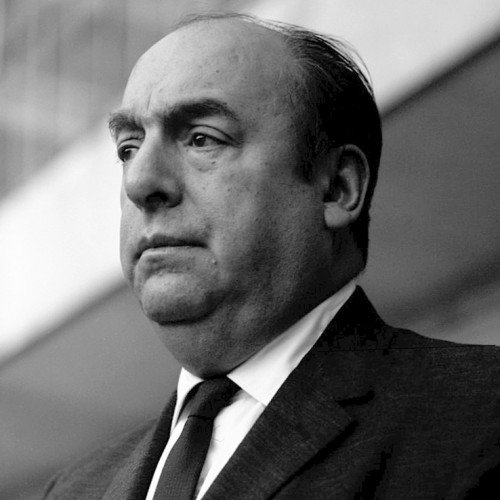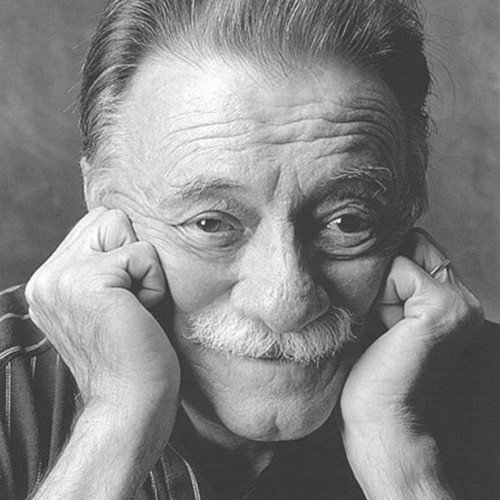Best Latin American Writers

Pablo Neruda
Ricardo Eliécer Neftalí Reyes Basoalto (12 July 1904 – 23 September 1973), better known by his pen name and, later, legal name Pablo Neruda (/nəˈruːdə/;[1] Spanish: [ˈpaβlo neˈɾuða]), was a Chilean poet-diplomat and politician who won the Nobel Prize for Literature in 1971. Neruda became known as a poet when he was 13 years old, and wrote in a variety of styles, including surrealist poems, historical epics, overtly political manifestos, a prose autobiography, and passionate love poems such as the ones in his collection Twenty Love Poems and a Song of Despair (1924). Neruda occupied many diplomatic positions in various countries during his lifetime and served a term as a Senator for the Chilean Communist Party. When President Gabriel González Videla outlawed communism in Chile in 1948, a warrant was issued for Neruda's arrest. Friends hid him for months in the basement of a house in the port city of Valparaíso; Neruda escaped through a mountain pass near Maihue Lake into Argentina. Years later, Neruda was a close advisor to Chile's socialist President Salvador Allende. When Neruda returned to Chile after his Nobel Prize acceptance speech, Allende invited him to read at the Estadio Nacional before 70,000 people.[2] Neruda was hospitalized with cancer in September 1973, at the time of the coup d'état led by Augusto Pinochet that overthrew Allende's government, but returned home after a few days when he suspected a doctor of injecting him with an unknown substance for the purpose of murdering him on Pinochet's orders.[3] Neruda died in his house in Isla Negra on 23 September 1973, just hours after leaving the hospital. Although it was long reported that he died of heart failure, the Interior Ministry of the Chilean government issued a statement in 2015 acknowledging a Ministry document indicating the government's official position that "it was clearly possible and highly likely" that Neruda was killed as a result of "the intervention of third parties".[4] However, an international forensic test conducted in 2013 rejected allegations that he was poisoned. It was concluded that he was suffering from prostate cancer.[5][6] Pinochet, backed by elements of the armed forces, denied permission for Neruda's funeral to be made a public event, but thousands of grieving Chileans disobeyed the curfew and crowded the streets. Neruda is often considered the national poet of Chile, and his works have been popular and influential worldwide. The Colombian novelist Gabriel García Márquez once called him "the greatest poet of the 20th century in any language",[7] and the critic Harold Bloom included Neruda as one of the writers central to the Western tradition in his book The Western Canon.
Statistics for this Xoptio

Mario Benedetti
Mario Orlando Hardy Hamlet Brenno Benedetti Farrugia[1] (Spanish pronunciation: [ˈmaɾjo βeneˈðeti] (About this soundlisten); 14 September 1920 – 17 May 2009),[2] best known as Mario Benedetti, was a Uruguayan journalist, novelist, and poet and an integral member of the Generación del 45. Despite publishing more than 80 books and being published in twenty languages he was not well known in the English-speaking world.[3] In the Spanish-speaking world he is considered one of Latin America's most important writers of the latter half of the 20th century.[4] Benedetti was born in Paso de los Toros in the department of Tacuarembó to Brenno Benedetti (a pharmaceutical and chemical winemaker) and Matilde Farrugia (a family of Italian descent). Two years later, they moved to Tacuarembó, the capital city of the province, and shortly after that, his father tried to buy a chemist’s but was swindled and went into bankruptcy, so, they moved and settled in Montevideo, the capital city of the country, where they lived in difficult economic conditions. Mario completed six years of primary school at the Deutsche Schule in Montevideo, where he also learned German, which later allowed him to be the first translator of Kafka in Uruguay. His father immediately removed him from the school when Nazi ideology started featuring in the classroom. For two years afterwards he studied at Liceo Miranda, but for the rest of his high school years he did not attend an educational institution. In those years he learned shorthand, which was his livelihood for a long time. At age 14 he began working, first as a stenographer and then as a seller, public officer, accountant, journalist, broadcaster and translator. He trained as a journalist with Carlos Quijano, in the weekly Marcha.[5] Between 1938 and 1941 he lived in Buenos Aires, Argentina. He worked in different professions on both banks of the Río de la Plata river, for example, as a stenographer.[6] In 1946 he married Luz López Alegre. He was a member of the 'Generation of 45', a Uruguayan intellectual and literary movement which included Carlos Maggi, Manuel Flores Mora, Ángel Rama, Emir Rodríguez Monegal, Idea Vilariño, Carlos Real de Azúa, José Pedro Díaz, Amanda Berenguer, Ida Vitale, Líber Falco, Juan Carlos Onetti, among others.[7] He also wrote for the famous weekly Uruguayan newspaper Marcha from 1945 until it was forcibly closed by the military government in 1973, and was its literary director from 1954. In 1957 he travels to Europe and visits nine countries as a correspondent for Marcha weekly magazine and El Diario newspaper.